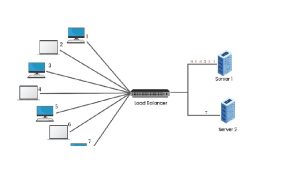
In the ever-evolving landscape of data management, the notion of data sovereignty has gained significant prominence. With the proliferation of clustered cloud hosting solutions, businesses face complex compliance challenges that demand careful navigation. In this in-depth exploration, we delve into the intricacies of data sovereignty and how it intersects with clustered cloud hosting, shedding light on the critical aspects that every organization should consider.
Understanding Data Sovereignty
Data sovereignty is the concept that data is subject to the laws and governance structures of the country where it is located. In the context of a clustered cloud world, it becomes imperative to comprehend the nuances of data sovereignty. It is not merely a matter of physical location; it encompasses the legal, regulatory, and security aspects that govern data storage and processing. The fundamental idea behind data sovereignty is to protect sensitive information and ensure compliance with local, national, and international data protection regulations. This means that the data’s location significantly impacts who has access to it and under what legal framework.
The Rise of Clustered Cloud Hosting
Clustered cloud hosting is a solution that combines the power of multiple cloud servers to enhance performance, redundancy, and scalability. It has gained popularity due to its ability to provide a more efficient and resilient environment for hosting critical applications and data. However, this innovation comes with its own set of challenges, particularly concerning data sovereignty. When organizations embrace clustered cloud hosting, they distribute their data across multiple servers, often in various geographical locations. This distribution creates a complex web of data that needs to adhere to the regulations of each location.
The Intersection of Data Sovereignty and Clustered Cloud Hosting
The confluence of data sovereignty and clustered cloud hosting introduces a host of complexities for businesses. Several key aspects need to be considered:
Legal Compliance
In a clustered cloud environment, data can reside in multiple jurisdictions, each with its unique set of data protection laws. Ensuring legal compliance with all relevant regulations becomes a formidable challenge. Organizations must invest in legal expertise to navigate these intricacies effectively.
Data Security
The distributed nature of clustered cloud hosting necessitates robust security measures. Data sovereignty mandates that sensitive data remains secure and is not exposed to unauthorized access. Implementing encryption, access controls, and regular security audits is crucial.
Data Ownership
Determining data ownership in a clustered cloud environment can be convoluted. Understanding who has control over data in various locations is essential. Clear contracts and service level agreements are essential to establish ownership boundaries.
Data Transfer and Portability
Transferring data within a clustered cloud can be cumbersome due to different legal frameworks. Ensuring data portability is vital, allowing businesses to move data between locations while maintaining compliance.
Data Localization
Some countries require data to be stored within their borders. This can conflict with the distributed nature of clustered cloud hosting. Adhering to data localization requirements while benefiting from clustered hosting’s advantages requires thoughtful planning.
Strategies to Navigate Complex Compliance Challenges
Navigating the intricate landscape of data sovereignty in a clustered cloud world demands a proactive approach:
Conduct a Thorough Compliance Audit
Evaluate the regulations in each jurisdiction where your data resides. Ensure your practices align with local laws, and adapt your data management strategies accordingly.
Data Classification and Segmentation
Classify data based on its sensitivity and regulatory requirements. Segment data to isolate sensitive information and ensure it adheres to the strictest regulations.
Data Sovereignty Partnerships
Consider working with cloud providers that offer data sovereignty solutions. They can help you manage the legal complexities and ensure compliance.
Regular Compliance Assessments
Continuously monitor and assess your data sovereignty and compliance strategies. Stay agile and adapt to evolving regulations.
Final Words
Data sovereignty in a clustered cloud world is a multifaceted challenge. It demands a deep understanding of the legal, security, and operational aspects. By proactively addressing these challenges, businesses can harness the benefits of clustered cloud hosting while maintaining compliance.
Commonly Asked Questions
Q1: What is data sovereignty, and why is it crucial in a clustered cloud environment?
Data sovereignty refers to the idea that data is subject to the laws and governance structures of the country where it is located. In a clustered cloud environment, data may be distributed across multiple locations, each with its unique regulations. It is crucial to ensure compliance with these regulations to protect sensitive data and avoid legal issues.
Q2: How can organizations ensure data sovereignty in a clustered cloud hosting setup?
To ensure data sovereignty in a clustered cloud hosting setup, organizations should conduct compliance audits, classify and segment data based on sensitivity and regulatory requirements, consider data sovereignty partnerships, and regularly assess compliance strategies.
Q3: What are the main compliance challenges associated with data sovereignty and clustered cloud hosting?
The main compliance challenges include navigating complex and varying legal requirements in different jurisdictions, maintaining data security across distributed environments, determining data ownership, ensuring data transfer and portability, and addressing data localization requirements.
Q4: Can organizations benefit from clustered cloud hosting while maintaining data sovereignty?
Yes, organizations can benefit from clustered cloud hosting while maintaining data sovereignty by implementing careful planning, security measures, and adherence to legal requirements. Working with cloud providers that offer data sovereignty solutions can also help.
Q5: How often should organizations assess their data sovereignty and compliance strategies?
Organizations should regularly assess their data sovereignty and compliance strategies to stay agile and adapt to evolving regulations. Continuous monitoring and assessment are essential to ensure ongoing compliance in a clustered cloud environment.
Advertisement







